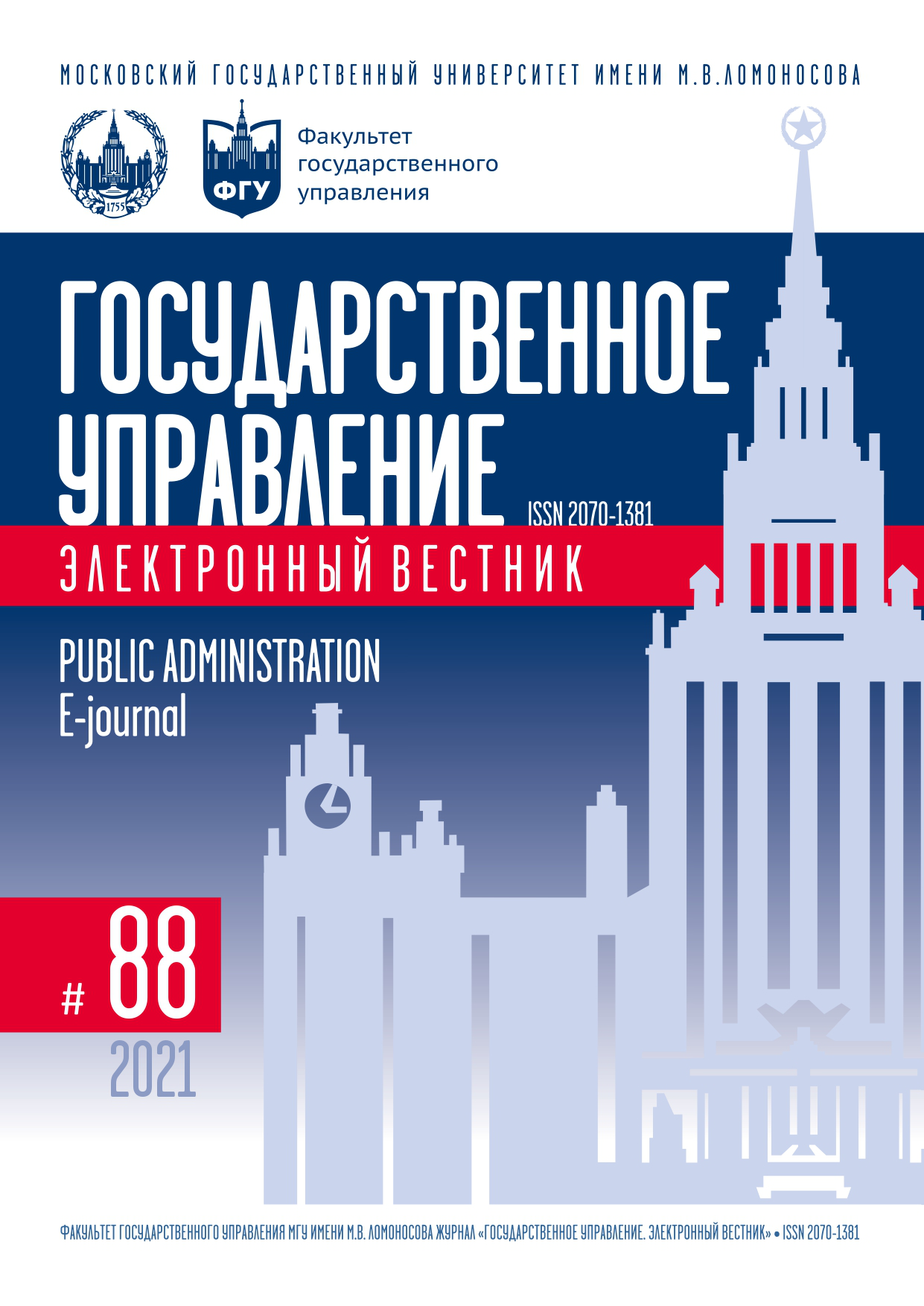State Support for Islamic Entrepreneurship in Service Sector in the Russian Federation: State and Growth Points in Expert Assessments
Keywords:
Islamic entrepreneurship, forms of small and medium business, state support for entrepreneurship, service sectorAbstract
In Russian science and practice, there is an ongoing discussion about the positioning of Islamic entrepreneurship in the structure of the Russian Federation national economy and the most effective mechanisms for its state support. On the one hand, the development of Islamic entrepreneurship in the service sector for the Muslim population is positioned as the fastest growing segment of the world economy and opens up new international markets for the Russian Federation, which necessitates state support for Islamic entrepreneurship as an independent form of SME. On the other hand, there is an opinion in unofficial rhetoric that the development of Islamic entrepreneurship does not correspond to the secular, multi-confessional nature of the Russian Federation. The purpose of the study is to describe the positioning of Islamic entrepreneurship and identify the socio-economic effects and limitations of its state support. The study uses a secondary analysis to identify the essence of Islamic entrepreneurship: theoretical approaches in foreign and domestic scientific sources, factual data from the catalog of member organizations of the Association of Muslim Entrepreneurs of the Russian Federation in calculating the relative size of the structure of Islamic entrepreneurship in the SME segment by industry. To characterize state support for Islamic entrepreneurship in the Russian Federation, the method of questioning representatives of Islamic business was used (N = 31). As a result, the specific features of the domestic model of Islamic entrepreneurship have been identified: the key sectoral segmentation of Islamic entrepreneurship from the SME sector, which is concentrated to the greatest extent in the service sector, entrepreneurship; informational closeness of Islamic business. The study made it possible to obtain expert opinions on the effectiveness of the implementation by state bodies of support for Islamic entrepreneurs, the generalization of which provides a basis for formulating conclusions about the problem of insufficient state support for Islamic business in the Russian Federation.
References
Абдулин О.М. О принципах исламского предпринимательства // Minbar. Islamic Studies. 2015. Т. 8. № 1. С. 65–74.
Бахарева О.В., Романова А.И. Институты инновационного развития региона. М.: «Научно-издательский центр ИНФРА-М», 2019.
Гибадуллин М.З., Аюпов А.А., Нуриев А.Р., Шагимарданов А.Р. Предпринимательство и ислам: российский исторический опыт. Казань: Изд-во Казан. ун-та, 2016.
Горьковенко Д.В. Отечественный и зарубежный опыт государственного управления малым предпринимательством // Вестник современных исследований. 2018. № 12.12(27) С. 119–127.
Григорьева Н.С. Социальная политика в России и мире: востребованность социального качества // Мир перемен. 2008. № 1. С. 82–95.
Козина Е. Обзор рынка халяльной мясосодержащей продукции за 2019 год // Российский продовольственный рынок. 2020. № 3. URL: https://foodmarket.spb.ru/archive.php?year=2020&number=183&article=2723
Косач Г.Г. «Исламская» дипломатия России: Организация исламского сотрудничества // Религия и общество на Востоке. 2020. № 4. С. 96–126. DOI: 10.31696/2542-1530-2020-4-96-126.
Кулькова В.Ю. Инфраструктурная поддержка социального предпринимательства в России // Национальные интересы: приоритеты и безопасность. 2017. Т. 13. № 9. С. 1592–1607. DOI: https://doi.org/10.24891/ni.13.9.1592.
Петрище В.И. Обеспечение эффективной занятости населения путем развития малого предпринимательства // Среднерусский вестник общественных наук. 2015. Т. 10. № 3. С. 201–209. DOI: https://doi.org/10.12737/11694.
Рябченко Л.И. Перспективы развития исламского банкинга в России // Вестник ГУУ. 2018. № 9. С. 140–146. DOI: https://doi.org/10.26425/1816-4277-2018-9-140-146. Государственное управление. Электронный вестник Выпуск № 88. Октябрь 2021 г.
Юзеф Х.А. Финансовый механизм развития исламского бизнеса в Российской Федерации // МИР (Модернизация. Инновации. Развитие). 2021. Т. 12. № 1. С. 56–70. DOI: 10.18184/2079-4665.2021.12.1.56-70.
Яхин Э. Партнерство (товарищество) как форма развития исламской модели предпринимательства в России // Ислам в современном мире: внутригосударственный и международно-политический аспекты. 2010. № 1-2. С. 20–24.
Chowdhury A.J.M.N. Towards an Islamic Model of Entrepreneurship // Management Islamic Perspective / ed. by M. Loqman. Dhaka: BIIT, 2008. P. 6–19.
Moha A.A., Md. Siddique E.A. Halal Entrepreneurship: Concept and Business Opportunities // Entrepreneurship: Contemporary Issues / ed. by M. Turuk. Chapter: 7. Publisher: IntechOpen, 2020. DOI: 10.5772/intechopen.93657.
Oukil M.S. Entrepreneurship and Entrepreneurs in an Islamic Context // Journal of Islamic and Human Advanced Research. 2013. Vol. 3. Is. 3. P. 111–131.
Sadeq A. Entrepreneurship Development and Training: An Islamic Perspective // Hamdard Islamicus. 1997. Vol. 20. Is. 4. P. 37–43.

